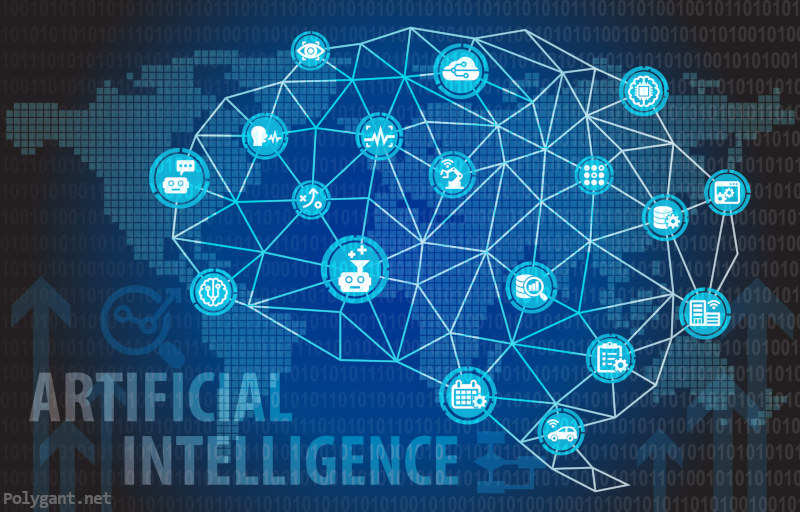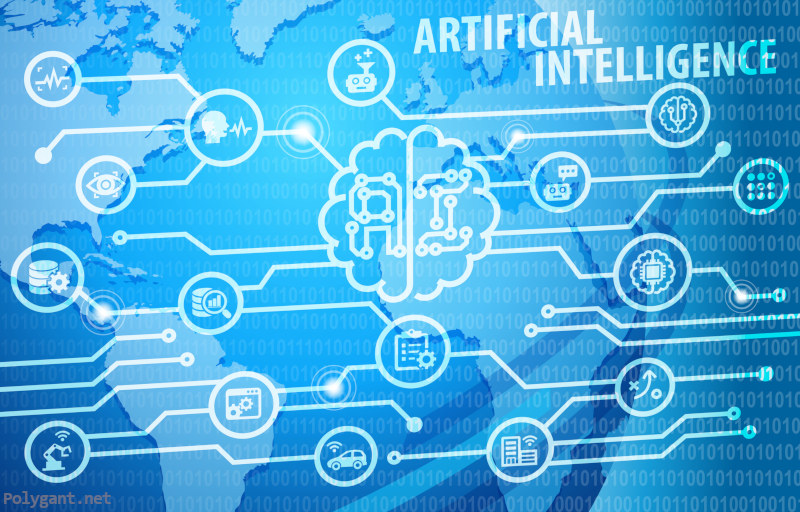Everyone knows artificial intelligence is to transform virtually all industries very soon. This technology has already become an integral part of people’s lives — so common that sometimes it’s not even noticed.
How will it change the Internet? Well, there is a set of ways AI is affecting the use of the world web, and this is to lead to the emergence of a range of AI-powered apps in a short time.
Table of Contents
Big business, big data
If Google Home and Amazon Echo seem brilliant to you, you probably haven’t seen what is going on at Google and Amazon data centres. In fact, big data — information you share in mobile apps and consumer and trend data companies capture — are worth millions of dollars.
As the Internet gets smarter, you will get more and more relevant results to your search queries. However, the reverse side is that search engines constantly collect giant volumes of information about you. Privacy is an acute concern today, but users should not be worried as long as data remain anonymous — after all, they always tweak the Internet up, don’t they? And search engines scrutinise the content entrepreneurs create, and then release high-grade expert materials.
Machine learning is facilitating the whole thing, and Google is focused not only on selling ads but on providing the best possible network use experience.
Shopping insights
The more a website knows about you, the more relevant shopping recommendations it will provide to you. For example, take an online store which knows your pins on Pinterest and colours of your room design — based on that, it will advise you on suitable curtains or pictures.
Most even fear to imagine all these data piled in one place, but the truth is it already happens to a certain extent. And the scale will grow, and people will embrace it.
All this will uplift the very approach to online shopping. Remember those friends playing up when saying the carpet you’d chosen is beautiful — just to not hurt you. Artificial intelligence, on the contrary, never makes biased or emotion-driven decisions — instead, they only rest on the real deal.
Marketplaces that have advanced recommendation systems will also benefit. Customers will remain loyal to the service that allow them to ‘show’ their room layout so that it can honestly select suitable products.
Exercises and diets
Set a goal to drop some excess pounds off your body or get yourself in an athletic shape? AI’s here to have your back. Just look at Apple Watch or Fitbit Versa: both of them not just collect your data but adjust your goals following the interim results. They motivate you to reach new tops.
The key thing is that they are always unbiased and working. Should you miss your workout 5 times in a row, your disappointed friend will not hold for too long cheering you up; but fitness trackers will keep on reminding day by day until you forcefully disable them.
Diets go down the same road: your app would never come up with a fake excuse after you ate a cake. It would just calculate the calories and inform the diet non-observance. Probably, it could be a pleasure to have an empathic friend, but most coaches recommend to not listen to kind pals. Empathy is good but 80% of weight loss depends on what you eat rather than what you do, so it’s important to forget about excuses.
In this context, artificial intelligence is brilliant as it can exclude emotions from the equation and just advises you on how to fulfil your objectives.
Productivity
What if things around you continuously transformed to make you more and more productive? Such a future is not just a dream anymore — all thanks to AI. Having studied your calendar, performance peaks and recessions, your environment will start working together with you to make you even more efficient. What if you automatically switched to another task at a certain moment? Or what if room lights changed with your mood, or their shades were adjusting to you for the whole day?
All these things are possible and probable. Environment control becomes more accessible, and so do digital assistants. Very soon, your home and office will be connected to you as closely as you let them to. Further, wearables will join the party. Just imagine your digital assistant recommending you to take a nap or directing you to bed at night so you can get a good sleep.
It’s already here. And it’s going to spread and grow more common. Artificial intelligence will up-end the Internet and web activities, forever. The main concern is that we should be aware of it and want such things to happen.


